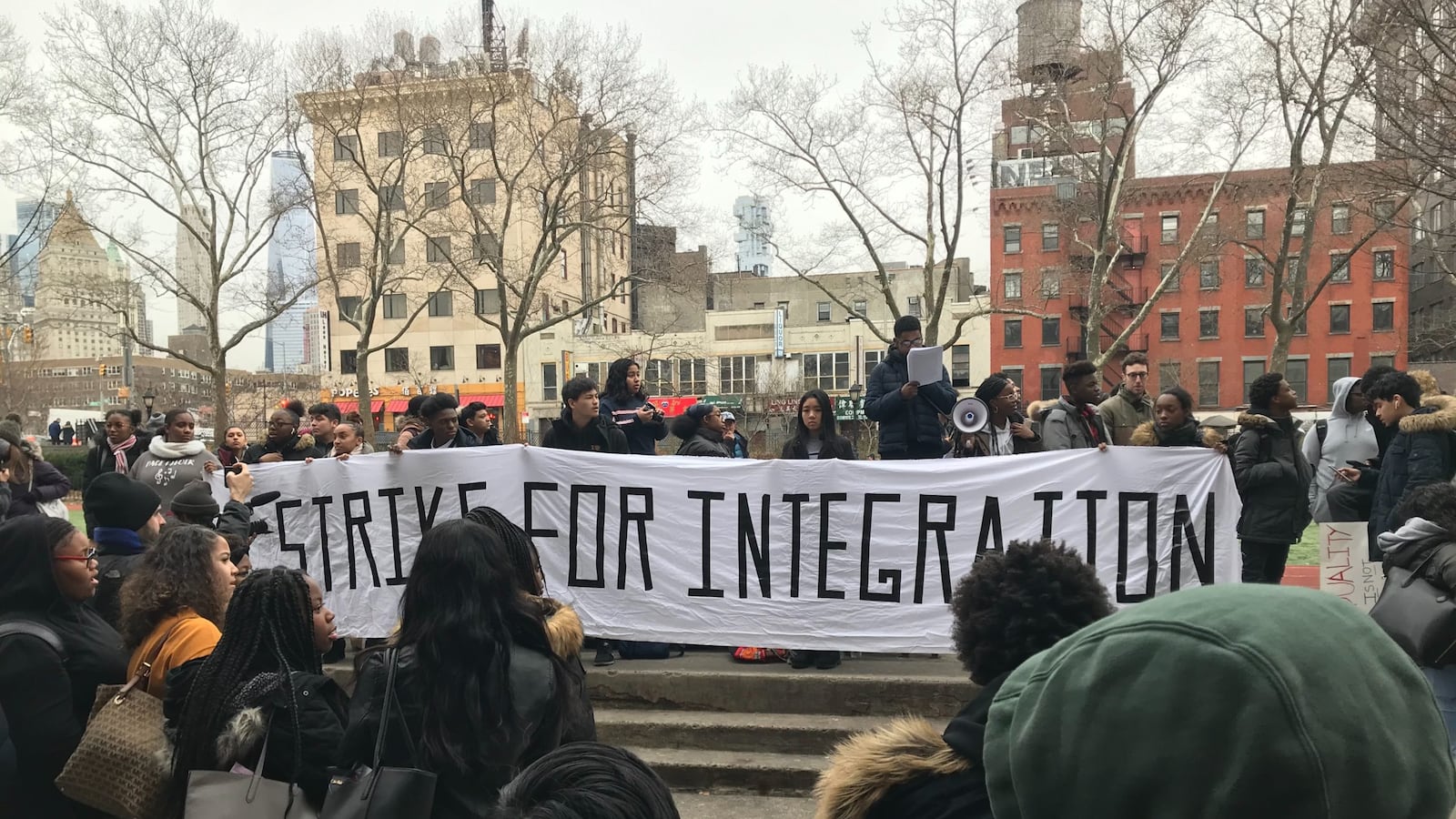Basketball gives Justice Harris a sense of purpose.
The senior at Manhattan’s PACE High School said that the sport can help some students of color stay off the street in his community. Yet many schools that serve predominantly black and Hispanic students don’t have a single sports team, he told a group of at least 150 people rallying Monday as part of an ongoing series of weekly demonstrations against school segregation in New York City.
Access to extracurricular sports occupied much of the focus at this week’s rally, organized by Teens Take Charge, a student advocacy group that wants education officials to remove academic screens from the city’s high schools. Monday’s gathering, held in front of the Chinatown school, was the student-led group’s fifth rally since starting their high-profile half-hour walkouts last month.
“I want to stress this point: sports, arts, and access to a quality education can literally save your life,” Justice said. “Sports transforms kids, it makes us better people, and most importantly, better students.”
Given the benefits, Justice couldn’t understand why so many schools with majority black and Hispanic student bodies were lacking sports teams or quality sports facilities.
At PACE — where last school year 87% of students were black and Hispanic — rally-goers shared stories of decrepit gym conditions, with broken lockers and showers, as well as a gym floor in poor condition. They contrasted what they have with the gleaming new sports facilities at Beacon high school, which is nearly half white.
A class action lawsuit was filed last year against the education department and Public School Athletic League, claiming that both bodies discriminated against black and Hispanic students by denying them an equal opportunity to play on school teams. Statistics cited in that lawsuit showed that the average black or Hispanic child attends a New York City school with 10 fewer teams than the average student of another race. In New York City’s most segregated schools, with more than 95% Black and Hispanic enrollment, there are only seven teams on average, according to the Fair Play for All coalition.
The education department has since launched a pilot program to expand sports teams at certain schools.
The crowd of students who gathered at PACE wanted to see bigger changes when it comes to athletics as well as allocating other resources. They were joined by Brooklyn Councilman Antonio Reynoso, who briefly spoke and encouraged students to keep pressing officials for change.
PACE students also mentioned they have no functional library, have very few art supplies and only five AP courses. They contrasted that to schools, such as Eleanor Roosevelt, on the Upper East Side, where students — only 13% of whom were black and Hispanic — had access to more than a dozen AP courses.
“We still work hard on the court no matter what the situation is and every time our team comes downstairs to the gym to practice or have a game, we always give it our all,” said PACE freshman Marcus Shields. “Our coach should not be self-funding our gear or our snacks. Our teachers should not be doing more while having less. We deserve to have more resources, and we deserve to be given the same shot as our white counterparts.”
The students plan to continue their weekly strikes until the education department takes more aggressive steps to integrate city schools.
Education department spokesperson Miranda Barbot acknowledged the importance of sports for students’ “motivation, focus and success” in and out of the classroom.
“Under this administration we’ve added hundreds of teams and piloted a shared teams model,” she said. “There’s work to do, and we’ll continue to partner with students and staff to increase access for all schools.”

